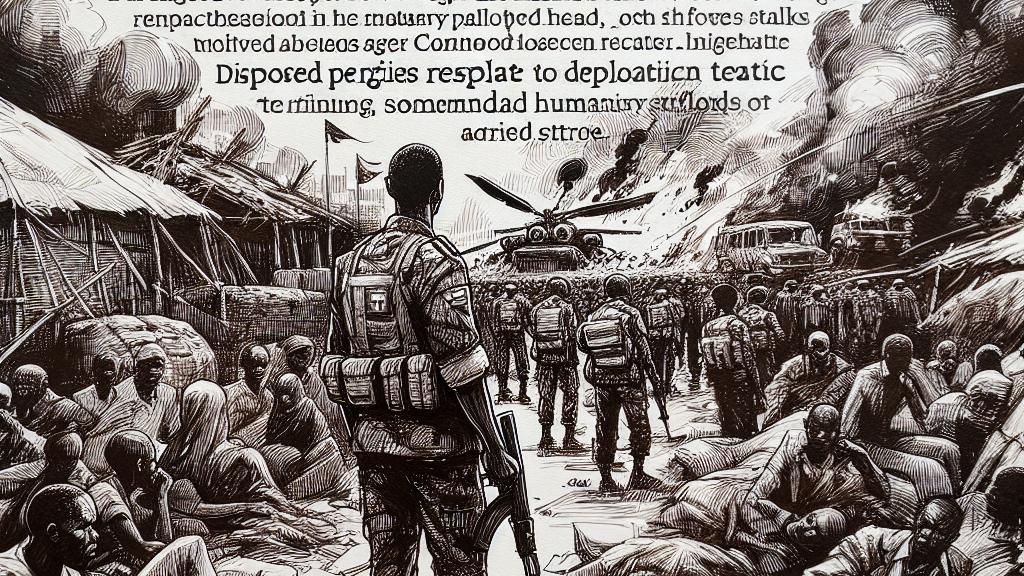Sudan's Army Stands Firm Amidst Ongoing Peace Efforts
Overview
- As tensions rise, Sudan's army shows unwavering resolve against the RSF, ignoring calls for peace.
- The humanitarian crisis escalates, leaving over 8 million people displaced and millions facing starvation.
- Despite repeated diplomatic efforts, the cycle of violence continues, challenging the future of peace in Sudan.

The Escalating Conflict in Sudan
The civil war in Sudan erupted tragically on April 15, 2023, initiating a fierce struggle between the Sudanese Armed Forces (SAF) and the Rapid Support Forces (RSF). This conflict became a defining moment in the country's history, rooted in deep-seated rivalries and competing ambitions of military leaders. It has escalated into a humanitarian disaster of monumental proportions, with families displaced and cities devastated. The SAF's determination to reclaim Khartoum highlights their aggressive strategy; Assistant Commander General Ibrahim Gabir clearly states they will not pause for diplomatic talks. This unwavering stance raises the stakes and complicates any hope for peace. In this charged atmosphere, the fight for power rages on, echoing the realities faced by millions caught in the crossfire.
The Dire Humanitarian Situation
Amidst the chaos, the humanitarian crisis deepens alarmingly. Approximately 25 million people, nearly half the nation's population, stand in urgent need of life-saving assistance. Recent reports paint a harrowing picture: child malnutrition has reached crisis levels, particularly in regions like North Darfur, where rates top alarming thresholds. Consider the Zamzam camp, where families struggle against hunger, and conditions deteriorate by the day. Humanitarian agencies operate under dire challenges; rampant violence and bureaucratic hold-ups hinder their missions. For instance, while some aid may reach blocked regions, many more remain cut off completely. As a result, innocent civilians continue to suffer gravely, navigating a daily reality of scarcity, fear, and uncertainty.
External Influences Complicating the Crisis
The role of external powers adds another layer of complexity to Sudan's ongoing struggle. Nations including the UAE and Iran are believed to provide significant military support to both the SAF and the RSF, drastically affecting the balance of power. For example, sources suggest sophisticated weaponry supplied to the RSF enhances their fighting capabilities, prolonging the conflict. This foreign intervention not only complicates peace negotiations but also escalates the violence. UN officials have sternly remarked that unless the international community steps up to curb this external influence, lasting peace will remain a distant dream. It’s imperative for global actors to recognize their role and responsibility in fostering a resolution that upholds the dignity and rights of the Sudanese people.

Loading...